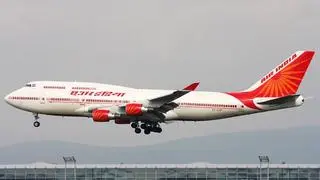Anyone with even a passing interest in sports will know that the home team has a huge advantage over the visitors — it knows the local terrain and conditions better, leading to better decisions. This is why an away win in cricket (or for that matter, any sport) is valued more than a home win.
What’s true for sports also holds true in the world of business. Prior knowledge is usually the key to success. And nowhere else is the importance of domain knowledge more apparent than in the airline business.
If you look at the ones who did really well in the business like Jet Airways’ Naresh Goyal or IndiGo’s Rahul Bhatia, the common thread is that they are insiders — folks who understood the business in and out before launching an airline themselves. Most of the younger entrepreneurs, such as Shyson Thomas of Air Pegasus and Ankayalapati Umesh of TruJet, also come with a similar pedigree. In contrast, look at the airlines that folded up or were sold, including East West, NEPC, ModiLuft, Damania, Paramount, and Kingfisher, the founders were outsiders with no real domain expertise. You can add the former owner of SpiceJet — the Sun Group — to this list.
“Most promoters of unsuccessful airlines had an ivory tower approach and interfered in day-to-day management without understanding the business,” says B Govindarajan, Chief Operating Officer of Tirwin Management Services, a provider of manpower training in the aviation sector.
The past is keyIn May 1974, Goyal founded Jetair to provide sales and marketing support to foreign airlines in India. He was involved in developing traffic patterns, route structures, computing operational economics and flight scheduling, all of which has made him an authority in the world of aviation and travel.
After gaining domain knowledge for nearly 17 years, he set up Jet Airways in 1991. The airline commenced operations on May 5, 1993 and Goyal has never looked back.
Similarly, Rahul Bhatia had over 20 years experience in the travel industry before starting IndiGo and making it as one of the most successful low-cost airlines.
Interestingly, the common link between Air Pegasus and TruJet is that the promoters of both are involved in ground handling service for many years. Air Pegasus, a regional airline based in Bengaluru, is the subsidiary of Decor Aviation, an aircraft ground handling services company. Similarly, TruJet, the brand name of Turbo Megha Airways, a regional airline based in Hyderabad, is a subsidiary of Turbo Aviation, an aircraft maintenance and ground-handling services company.
Domain strengthIndian aviation history is replete with examples of many failed airlines primarily due to lack of domain knowledge. The airlines that still survive are the ones where promoters have strong domain knowledge, says Govindarajan of Tirwin.
Domain knowledge is not about the length, width and depth of the entire business. It is about a greater understanding of certain aspects. This will help the airline capitalise on the associated opportunities and face challenges better, he says.
But domain knowledge is a must to any business. So, what’s distinctive in aviation? Govindarajan says airline business is complex. It is capital intensive, highly regulated and subjected to national and international regulatory compliance and protocols, making expertise a paramount necessity.
Does this mean an investor must have the domain knowledge? “No. I believe that the management that is responsible for day-to-day operations should have the domain knowledge. Globally, many successful airlines are managed by professional teams,” he says.
In India, an investor believes that he is an expert in aviation just because he has been successful in some other businesses. If the investor has no domain knowledge, he should keep away from business and leave the management to the professionals with domain knowledge, of course keep few controls to protect his investments, says Govindarajan.
Says Amber Dubey, Partner and India head of aerospace and defence at global consultancy KPMG, the key building blocks to success in aviation include strategy, execution, quality of people and the humility to accept mistakes. This requires both knowledge and financial strength. It can't be an 'either-or'.
Aviation is different from other manufacturing and service sectors. There are human lives involved here — mostly upper middle class, elite and the superstars. The cost of assets runs into billions of dollars and the cost of operational errors is high — one tiny mistake and the whole airline gets grounded.
Also, the Indian aviation industry has several challenges on the policy, regulatory and taxation front. Domain knowledge of promoters helps in seeing potential pitfalls when the going is good and staying calm when things are not. Some promoters panic during adverse periods and end up taking abrupt decisions that end up harming the airline, employees, creditors and the promoters themselves, says Dubey.
“If you are not a chef, then don’t think of starting a restaurant,” says Shyson Thomas, Managing Director of Air Pegasus. People generally talk about deep pockets to start an airline. An airline is a capital-intensive business. However, the optimum utilisation of the capital in the right deployment is the key. “Just having a deep pocket is not enough. With so much of deep pocket, what happened to Vijay Mallya and (Kalanithi) Maran. They miserably failed in the business. Domain knowledge is a must,” says Thomas, who has over 16 years experience in the aviation ground handling business.
Ankayalapati Umesh of TruJet too feels that domain knowledge is more important than just money. “I got motivated by Captain Gopinath because I have started my business career with Air Deccan,” he says.







Comments
Comments have to be in English, and in full sentences. They cannot be abusive or personal. Please abide by our community guidelines for posting your comments.
We have migrated to a new commenting platform. If you are already a registered user of TheHindu Businessline and logged in, you may continue to engage with our articles. If you do not have an account please register and login to post comments. Users can access their older comments by logging into their accounts on Vuukle.